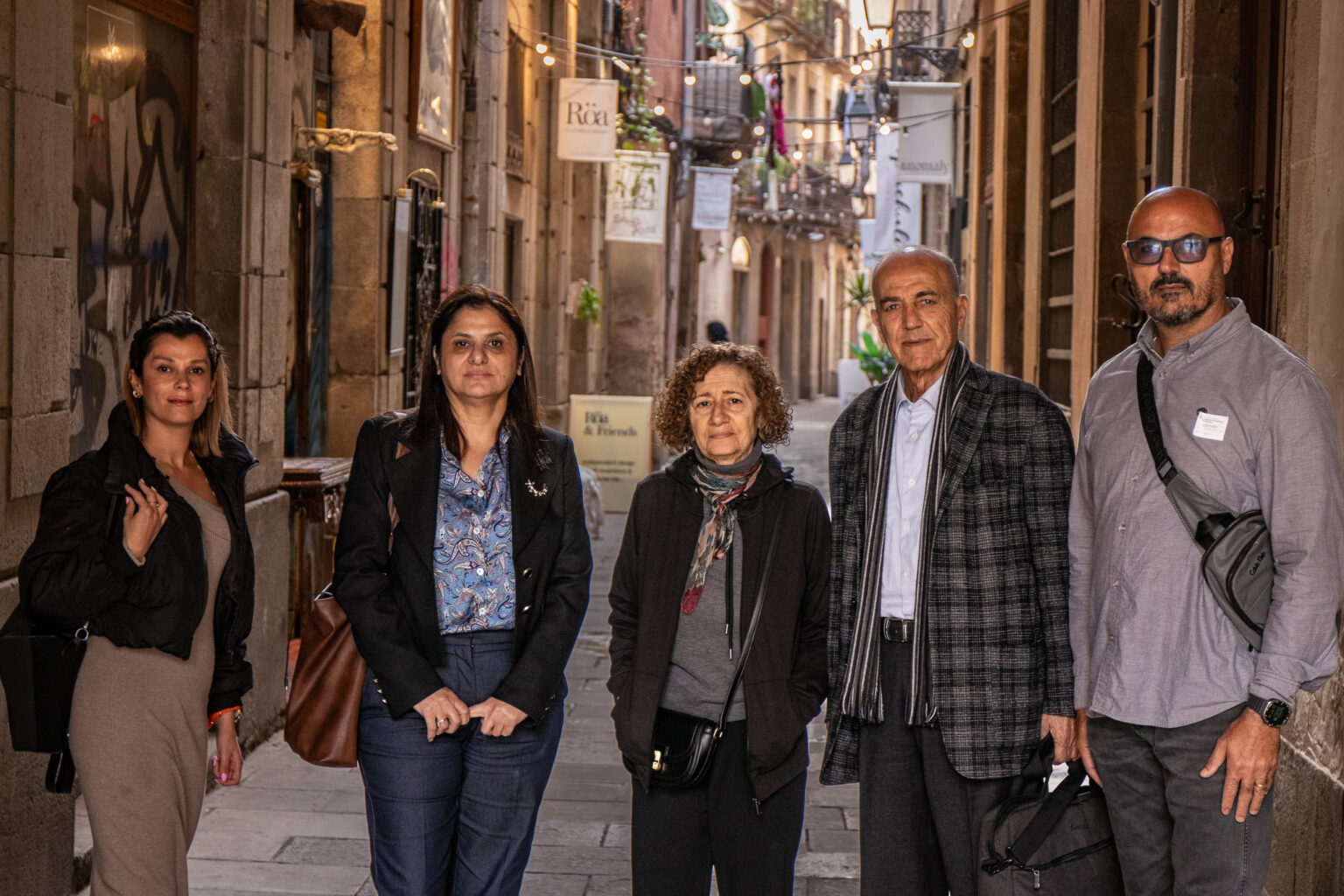Hikmat Al Amine Hospital is the last remaining healthcare facility in southern Lebanon. A delegation of its healthcare professionals visited Barcelona. They explained their urgent requirements: ‘Medicines, food and medical staff, because many have had to leave and we currently lack essential specialists, such as neurosurgeons and vascular surgeons.’
While the world’s attention is focused on Gaza, southern Lebanon is experiencing a similar tragedy. According to the 2025 global report by Human Rights Watch, more than 3,445 people have been killed as a result of Israeli aggression, over 14,600 have been injured and 400,000 have been forced to flee to Syria.
Amidst this chaos and uncertainty, Hikmat Al Amine Hospital in Nabatieh, which is run by the Socorro Popular Libanés (SPL) or Lebanese Popular Relief, has remained the only operational hospital in southern Lebanon since the start of the Israeli offensive. They are treating victims of the bombings and patients with chronic conditions. Their work in health, humanitarian and community fields has been essential in one of the areas most affected by military escalation.
In mid-April, as part of the international cooperation project ‘The right to health and a dignified life free from violence in southern Lebanon‘, promoted by the Catalonia-Lebanon Association and the ACSAR Foundation with support from the Catalan Agency for Development Cooperation, a delegation from the Lebanese Popular Relief Organisation and Hikmat Al Amine Hospital made a technical visit to Barcelona.
We spoke to members of the commission: Ali Moussaoui (national president of the SPL); Mona Abouzeid (director of Hikmat Al Amine Hospital); Sara Salloum (head of nursing and coordinator of the hospital support project); and Chafih Fouani (head of the hospital’s medical team). They shared their experiences of the bombings and the current situation in southern Lebanon. The purpose of the visit was to discuss health emergencies, cooperation and awareness-raising initiatives that could improve living conditions in southern Lebanon. They met with various organisations, including the Barcelona City Council, the Pau Foundation, the Workers’ Commissions (CCOO in Spanish), the Fons Catalá, the Health Department of the Generalitat de Catalunya, the Directorate of International Cooperation and women’s organisations specialising in sexual and reproductive health.
One of the most important issues is implementing a project to treat medical waste. Staff from the Popular Relief Hospital in Nabatieh received training from the Catalan Waste Agency and visited two major hospitals in Barcelona as part of this project. The aim is to set benchmarks and reach agreements that can be implemented.
How has Hikmat Al Amine Hospital managed to remain the only hospital still standing in southern Lebanon in such an adverse context?
When the war in Gaza began on 7 October 2023, we at the hospital drew up an emergency action plan to outline the steps to be taken in coordination with other stakeholders at the national level. As Lebanon borders Palestine, we knew that if Israel attacked Palestine, it would also attack Lebanon. Indeed, they started immediately after Gaza.
On 23 September 2024, Israel began striking Lebanon with great force, and the entire medical team decided to stay in the hospital to help people. We spent more than 60 days inside the hospital. We were doctors, nurses and administrative staff, unable to leave because of the constant bombing of the region.
The bombings took place 200 metres from the hospital, causing serious damage to the infrastructure, including broken windows and ceilings, and completely collapsed roofs. We then moved the medical equipment and ICU facilities from the third floor to the ground floor.
Due to this terrible war, only the strictly necessary personnel remained in the hospital. Under normal conditions, the hospital employs 217 people, 70 of whom are doctors. However, due to the severity of the attacks and the resulting fear, staff numbers were reduced first to 150 and then to 100.
That is how we are holding on. We are working in coordination with the Red Cross, who are responsible for transporting the wounded to other cities, such as Beirut and Saida. We are also collaborating with the government’s Civil Defence, who are responsible for searching the rubble for wounded and deceased individuals.
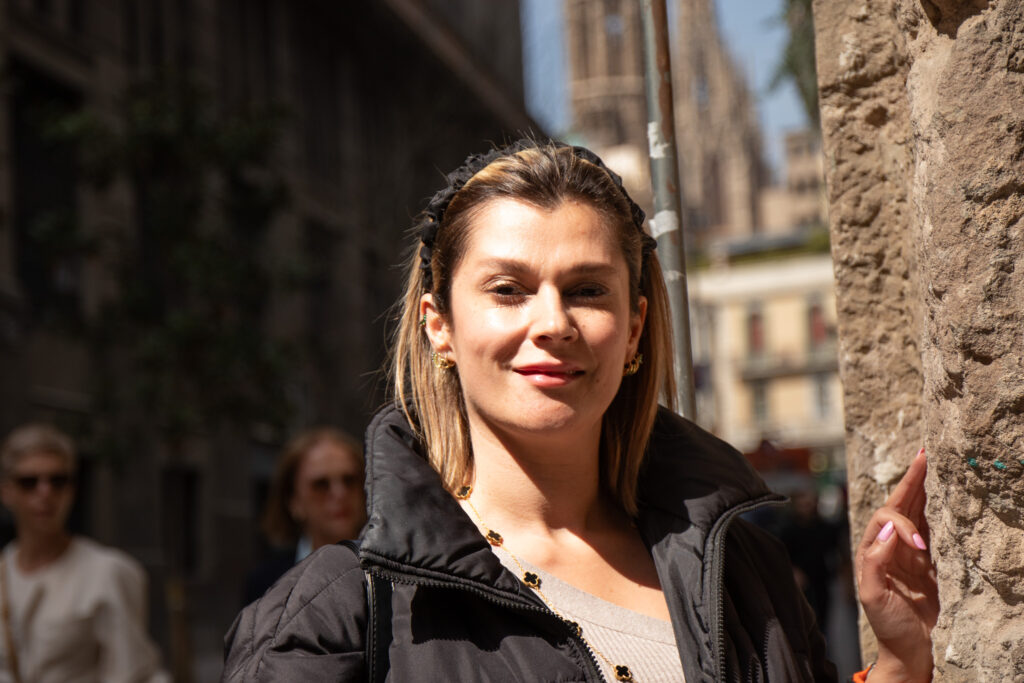
What type of medical care did you prioritise in this situation? What have the main emergencies been?
During the war, we tried to transfer all the civilians in the hospital to other cities, so that we could focus on treating those wounded in the attacks. However, not everyone was able to leave. Therefore, we offer medical care and provide basic supplies and food to those who have remained in the Nabatieh region because they cannot afford to leave, particularly the elderly.
The most serious situation occurred on 17 and 18 September 2024, when Israel launched an attack that destroyed walkie-talkies in Lebanon. There were too many casualties, all of whom had serious injuries to their eyes and hands. Over the course of 24 hours, we performed more than 30 operations and worked alongside medical teams around the clock.
What are the biggest challenges you face during wartime?
The war has brought many challenges to our lives. Our most vital needs are medicine, food and medical personnel. Many have had to leave, so we currently lack essential specialists for this context, such as neurosurgeons and vascular surgeons.
Much of the hospital has no electricity, which significantly reduces our ability to operate. Working in the medical field without sufficient resources to provide patients with the treatment they need is a problem you face. You have to transfer patients to other institutes or hospitals for more advanced treatment, but even then, not everyone can be moved.
What about the collateral effects of war? How do you cope with your own psychological trauma?
It’s very difficult. Seeing your neighbours, friends or family members injured and being unable to offer them treatment at the hospital also affects your mental state.
Living in a hospital for about 66 days without your family is stressful and pressurising. You have to stand by the window and watch bombs and missiles being fired in front of you, and you can’t do anything about it. You can’t go out and help people who have been attacked because it’s too dangerous; it’s like being in prison.
It’s a very difficult situation, both mentally and emotionally. It’s especially hard to deal with in the early days of the war. Over time, however, you adapt to the situation and find the strength to be resilient.
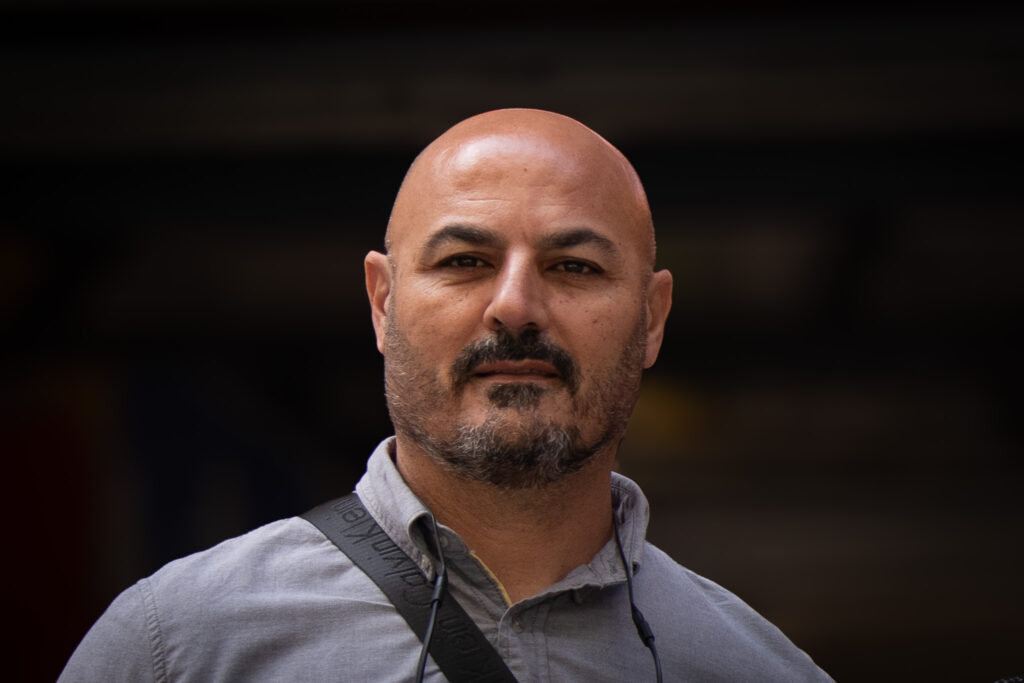
Is the healthcare team supported or prepared in any way?
Before the war, we were trained in a World Health Organisation programme to know what to do in these types of circumstances, both professionally and in terms of care. We are trained to respond to crisis situations, we are trained in how to develop contingency plans, mental health management, the supply of equipment and provisions, and the service that should be provided to patients depending on whether they are civilians or soldiers.
How have you coordinated the humanitarian and community response to the various situations caused by the bombings from the Lebanese Popular Relief (Socorro Popular libanés)?
The Socorro Popular Libanés (SPL) or Lebanese Popular Relief was officially established in 1964, although it had been operating since 1968. It is a civil and secular organisation. In Lebanon, the population and politics are divided along religious lines. Therefore, the SPL operates in all regions of Lebanon, regardless of religious affiliation.
We are a non-profit, democratic organisation that relies mainly on volunteers. Almost all our members are volunteers, except for hospital staff and some healthcare personnel at our centres around the country.
In addition to the hospital, we have 22 social and health centres across Lebanon where we provide assistance to around 1,200 individuals from approximately 600 families. We ensure that their most basic needs, such as healthcare, medicine, water, electricity and food, are met.
These centres are self-managed. Displaced people are responsible for cooking, keeping the space clean, and organising themselves into different tasks. Similarly, individuals who have been displaced and are housed in private residences receive the same benefits.
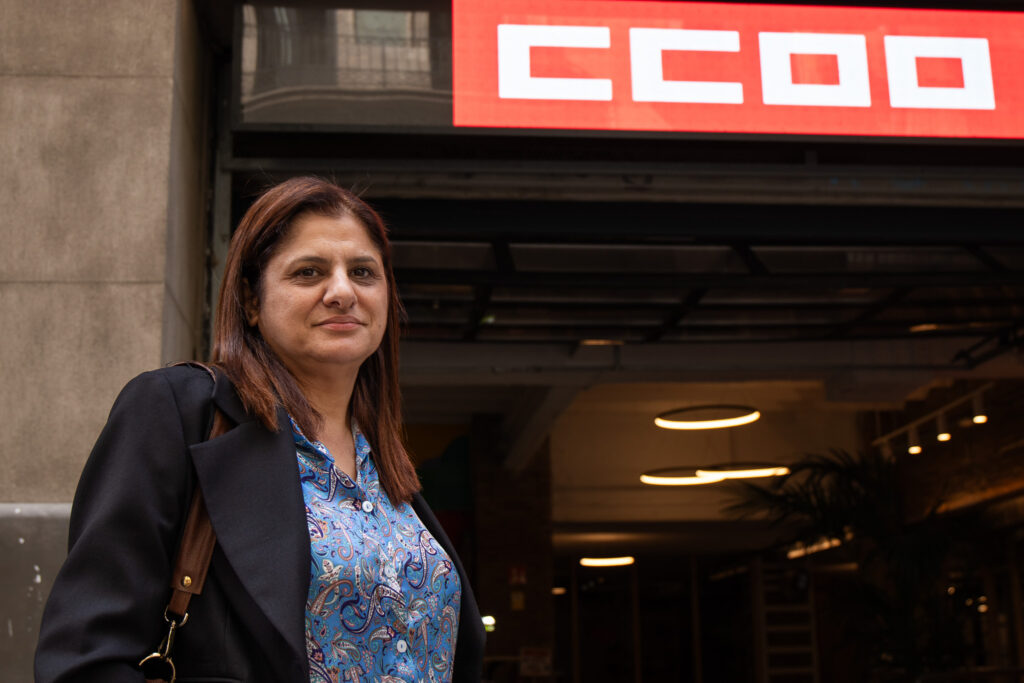
Which organisations are you collaborating with to strengthen your response capacity in this situation?
In general, all our projects are funded by Catalan cooperation agencies, such as the Catalan Agency for Development Cooperation, the Barcelona City Council and the Fons Català, at both the humanitarian and international cooperation levels. During the war, we also worked in coordination with local organisations, city councils, and the United Nations.
Our partners and allies share our principles and values, embodied by the slogan ‘Together for humanity’. We work towards achieving sustainable development for our region based on five key areas: social (including health and education); cultural; economic; political; and environmental. Our primary focus is on the social aspect.
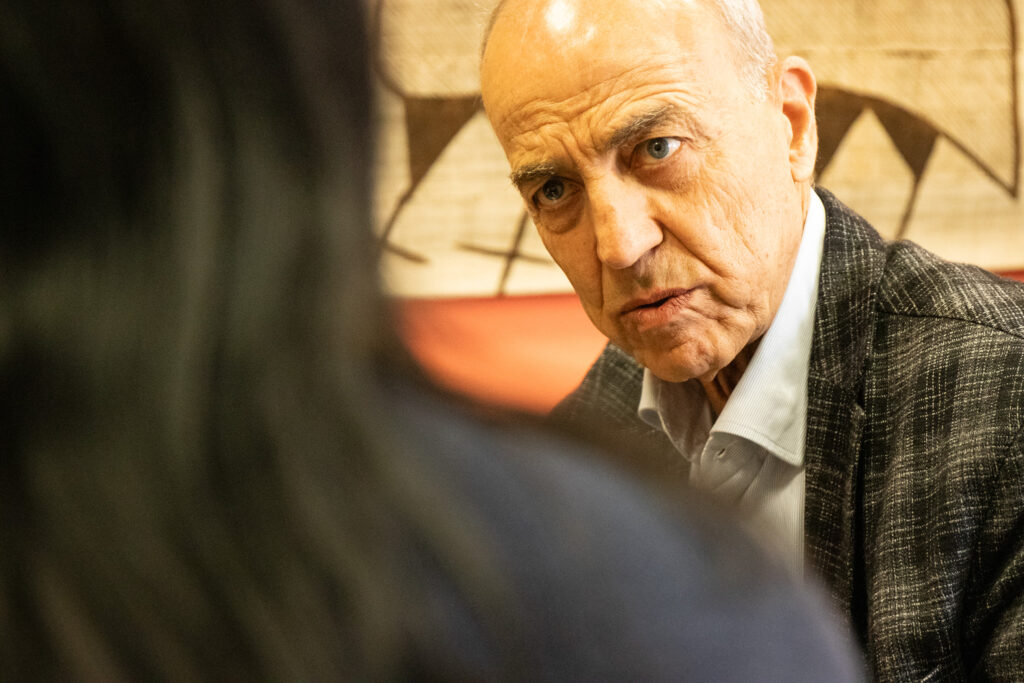
How necessary is international support in these circumstances?
In the current situation, all forms of international support, whether political, humanitarian, medical or informational, are necessary and important. Despite the ceasefire declaration, Israel continues to launch savage daily attacks on Lebanon. Added to this is the country’s internal economic crisis and the new regime in Syria, which is destabilising the north-eastern border region with threats of all kinds.


